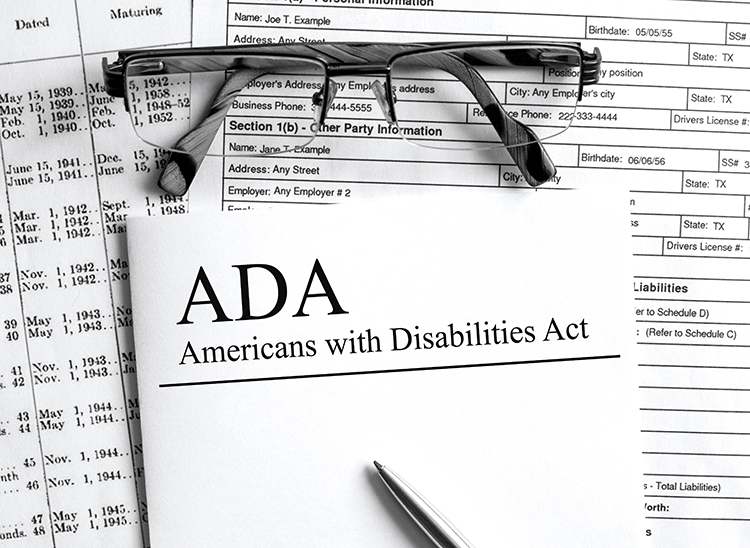The country has a long way to go with ADA compliance, say 2 civil rights lawyers

Image from Shutterstock.
Although the Americans with Disabilities Act is decades old, many businesses, including law firms, continue to treat it as a suggestion, rather than federal law, according to Eve Hill and Jason Turkish, two lawyers who represent plaintiffs in disability cases.
That’s true for law schools, as well, according to Hill and Turkish, who are featured in this month’s Asked and Answered podcast, which is looking at how the practice of law has changed over the years.
Send ideas for future episodes to ABA Journal Senior Writer Stephanie Francis Ward.

Apple | Spotify | Google Play
.png)
In This Podcast:

Eve Hill
Eve Hill, a partner with Brown, Goldstein & Levy, previously was a deputy attorney general in the U.S. Department of Justice’s Civil Rights Division. The Baltimore lawyer has a disability rights practice and also works with organizations and industry groups through the law firm’s Inclusivity Strategic Consulting.

Jason Turkish
Jason Turkish is the managing partner Nyman Turkish, a nationwide litigation and disability law firm with offices in California, Florida and Michigan. Legally blind since birth, he was lead counsel in a recent settlement with the Law School Admission Council, which led to plans to eliminate the LSAT’s logic games section for all applicants.



